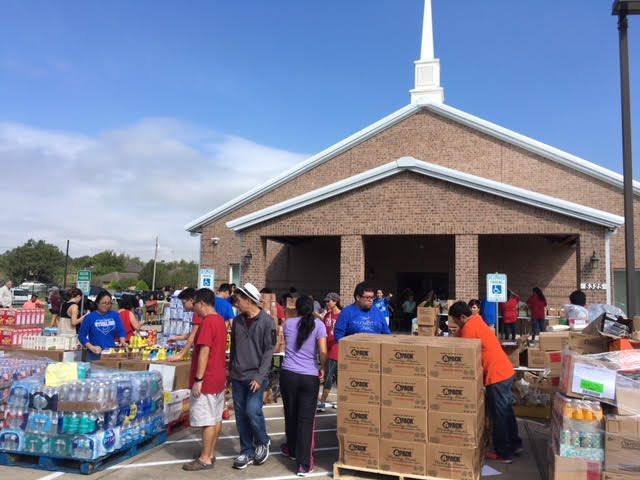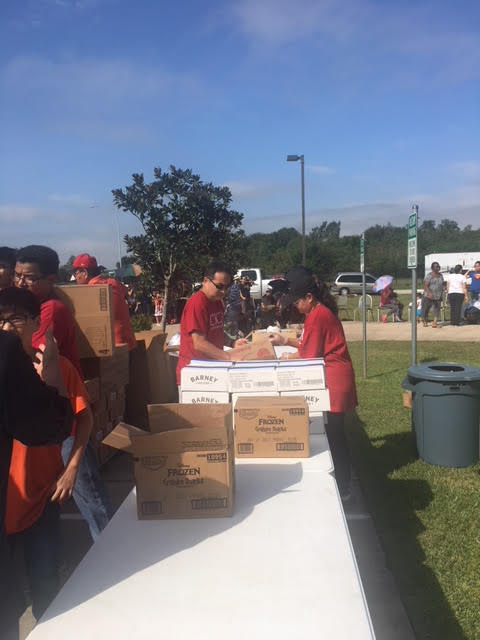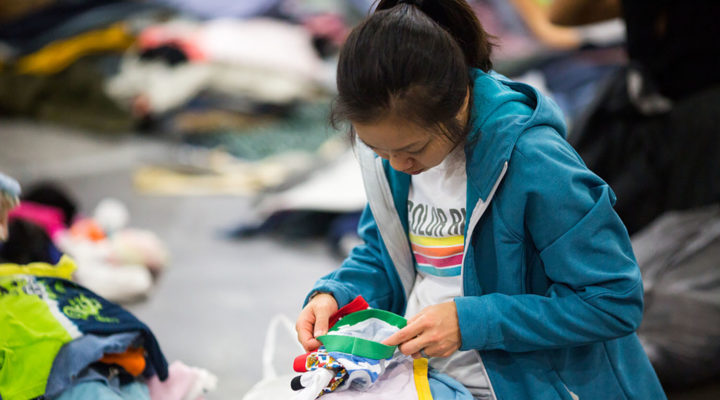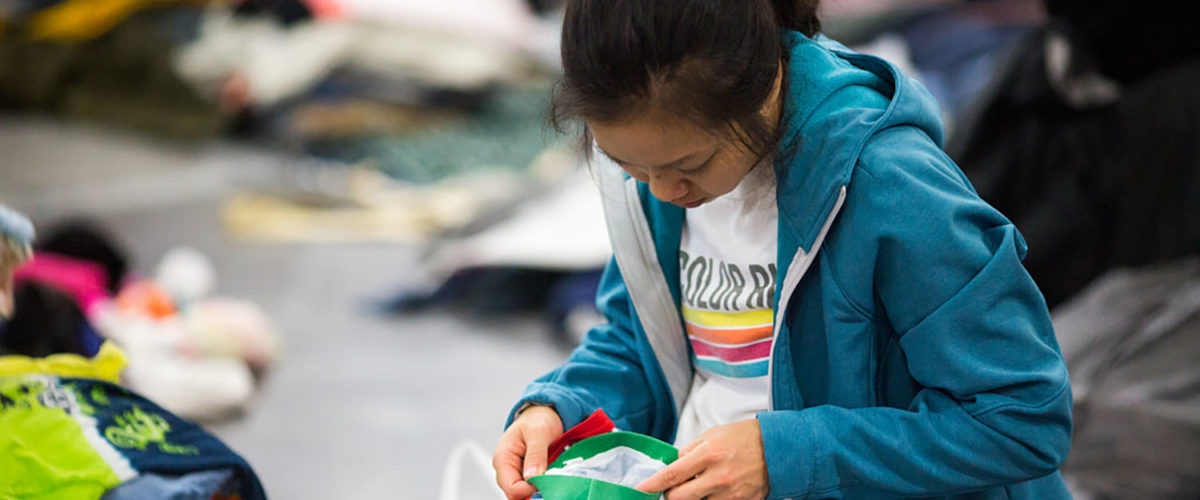Refugees are usually depicted as people in great need. And that’s understandable since most have escaped war and famine with little more than the shirts on their backs.
But the devastation brought by Hurricane Harvey has enabled a church in Texas to prove refugees and their descendants are eager and able to be helpers, too.
Cambodian Baptist Church of Houston in early October conducted a mass distribution of food and other supplies to the Hispanic neighborhoods surrounding it. The congregation also has been working with Cooperative Baptist Fellowship disaster response coordinators to help a hard-hit Cambodian farming community in Rosharon.
Pastor Panha Mey said his church’s hurricane relief work isn’t about ethnicity or breaking refugee stereotypes, but just about being the church. And that goes back to congregational identity.
“I wasn’t thinking about a refugee church, I was thinking more of a missional church that would go where God wants us to go,” said Mey.

Cambodian Baptist Church in Houston distributed 20 pallets of hurricane relief supplies Oct. 7. (Photo/Cambodian Baptist Church)
On Oct. 7, he said, that identity expressed itself in a major outreach effort to its neighbors regardless of ethnicity, immigration status or religious affiliation.
Volunteers that day were waiting on the regular 10-pallet shipment of fresh produce.
“We hold a monthly food fair as an ongoing ministry for our community, even before Harvey,” Mey said. The church is located near Houston’s William P. Hobby Airport.
But when it arrived, the truck dropped off 20 pallets of disaster relief supplies, instead. Church members had to scramble to unbox and sort the food and materials in a way to help the maximum number of people.
Close to 60 volunteers served about 1,300 people, including hundreds of children and elderly from the predominately Hispanic community.
“It took a lot of work to sort through those pallets,” Mey said. “The pressure was on.”
There’s also been a sense of urgency driving the congregation’s efforts to help Cambodian refugee farmers in the community of Rosharon.
There, it has been cooperating with CBF Texas and Fellowship Southwest churches to muck out flood-damaged homes. Tents and air mattresses also have been provided to families whose houses were damaged in the storm.

Volunteers at Cambodian Baptist Church in Houston prepare boxes of hurricane relief supplies for neighbors on Oct. 7. (Photo/Cambodian Baptist Church)
About 90 percent of the 200 Asian families in that area are displaced and have lost the large green houses they used for farming, said Butch Green, CBF field personnel based in Houston and coordinator of Fellowship’s Houston-area hurricane recovery efforts.
Mey helped by introducing CBF officials to residents in the area. Since then, the efforts have grown to include many others.
“Cambodians and Koreans and a lot of other Asian groups have come down to help,” Green said.
At Cambodian Baptist, which was originally housed at South Main Baptist Church in Houston, the Harvey-related work is a continuation of its mission to be known as a compassionate and relevant church – not a refugee one.
“If we continue to focus on ‘Cambodian,’ we are not going to reach people,” Mey said.
The church has two services, one in English and one in the Khmer language of its founding, refugee members. The first draws up to 70 every Sunday, and the latter up to 30.
“We have to learn the culture to best reach people,” he said. “If we don’t pay attention to that, culture will leave us behind.”


